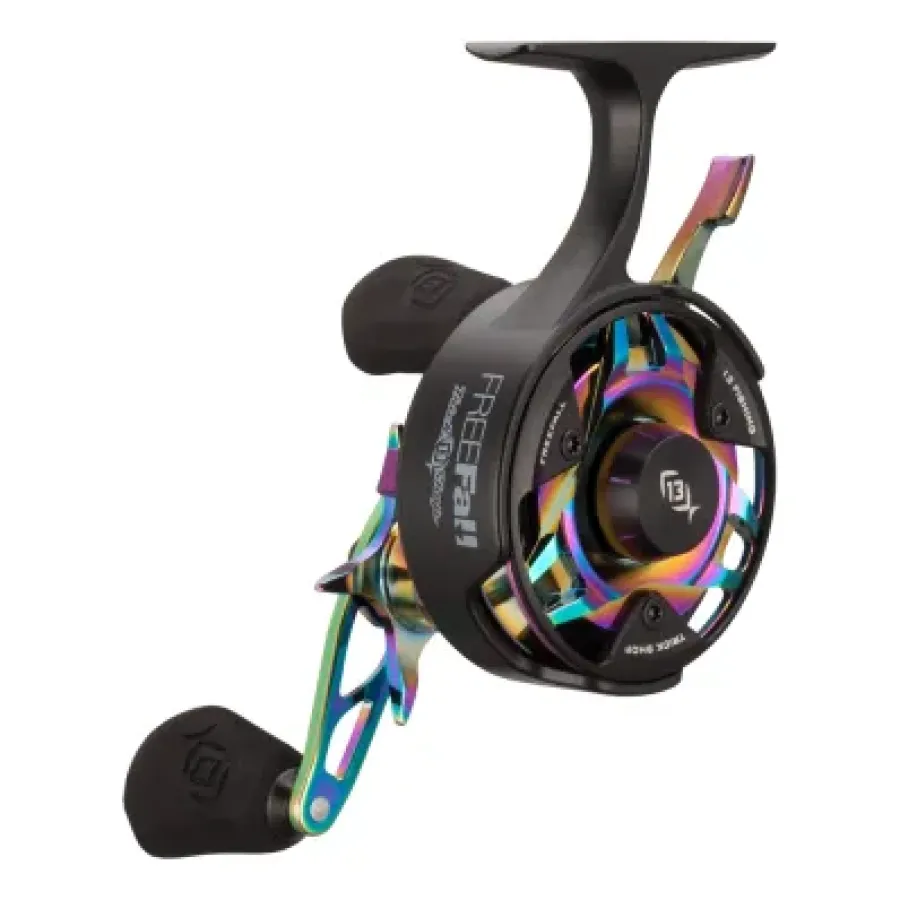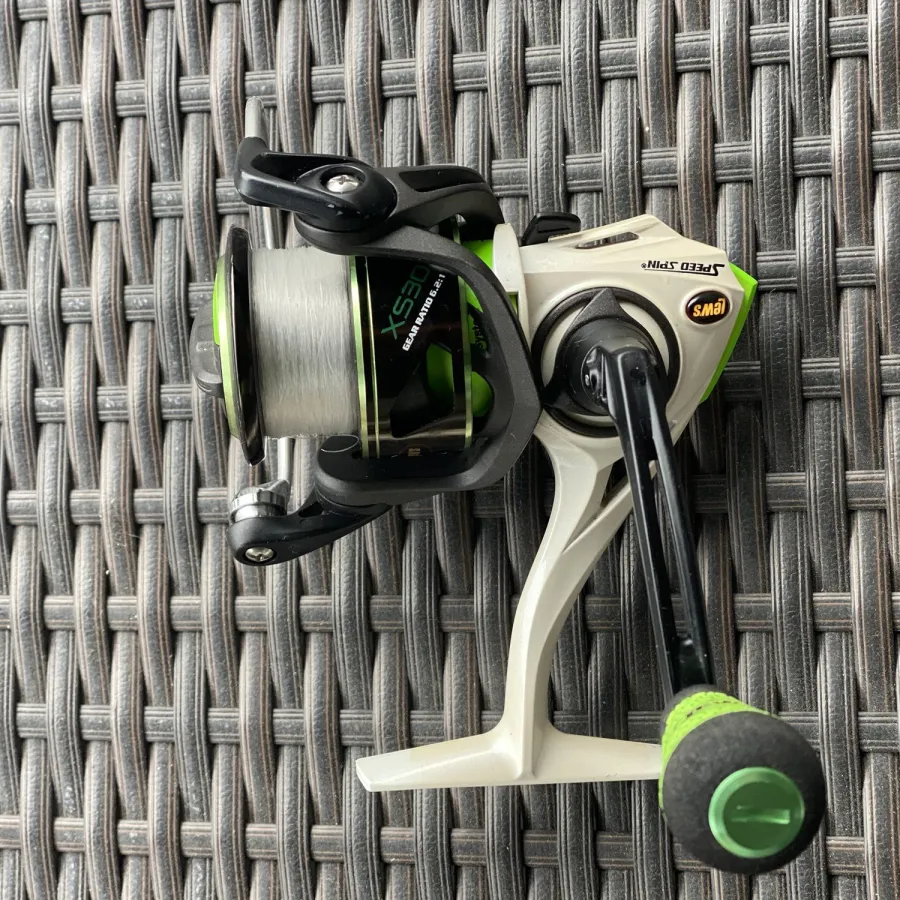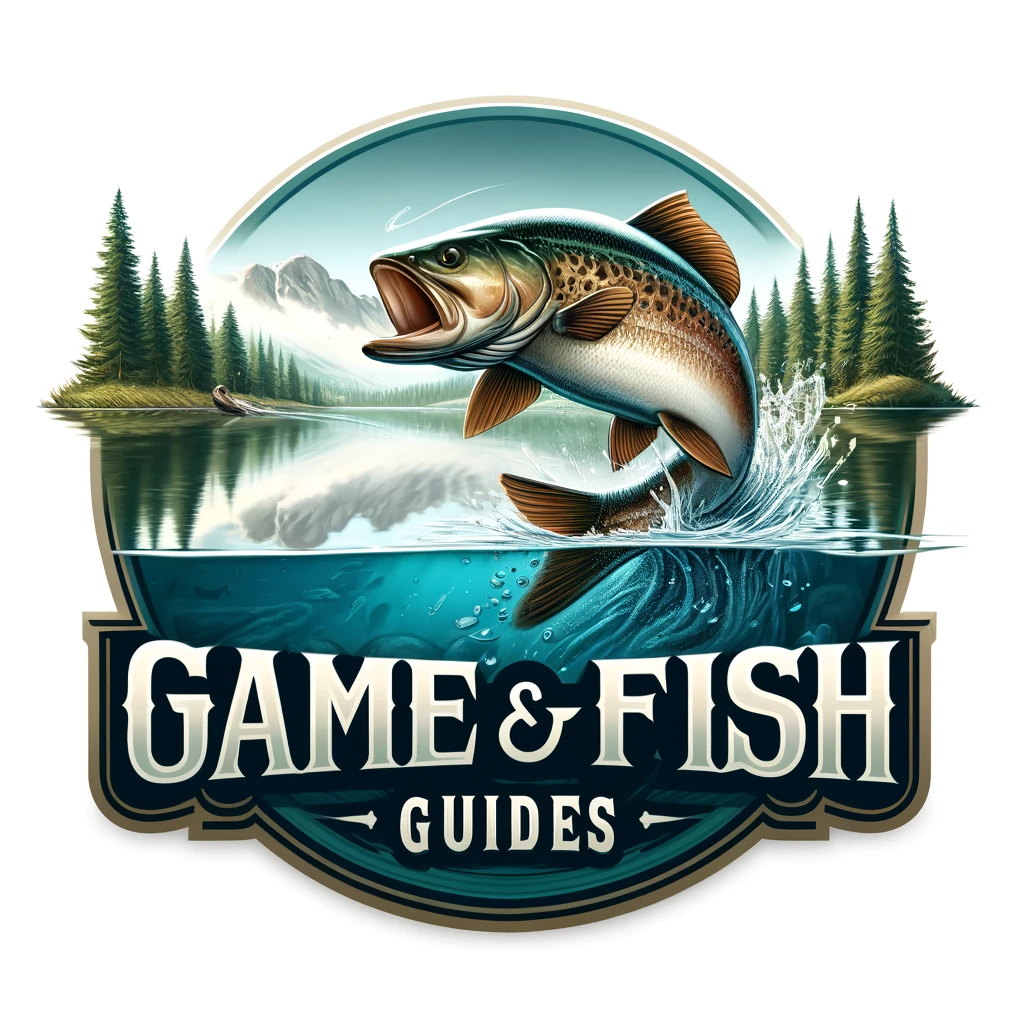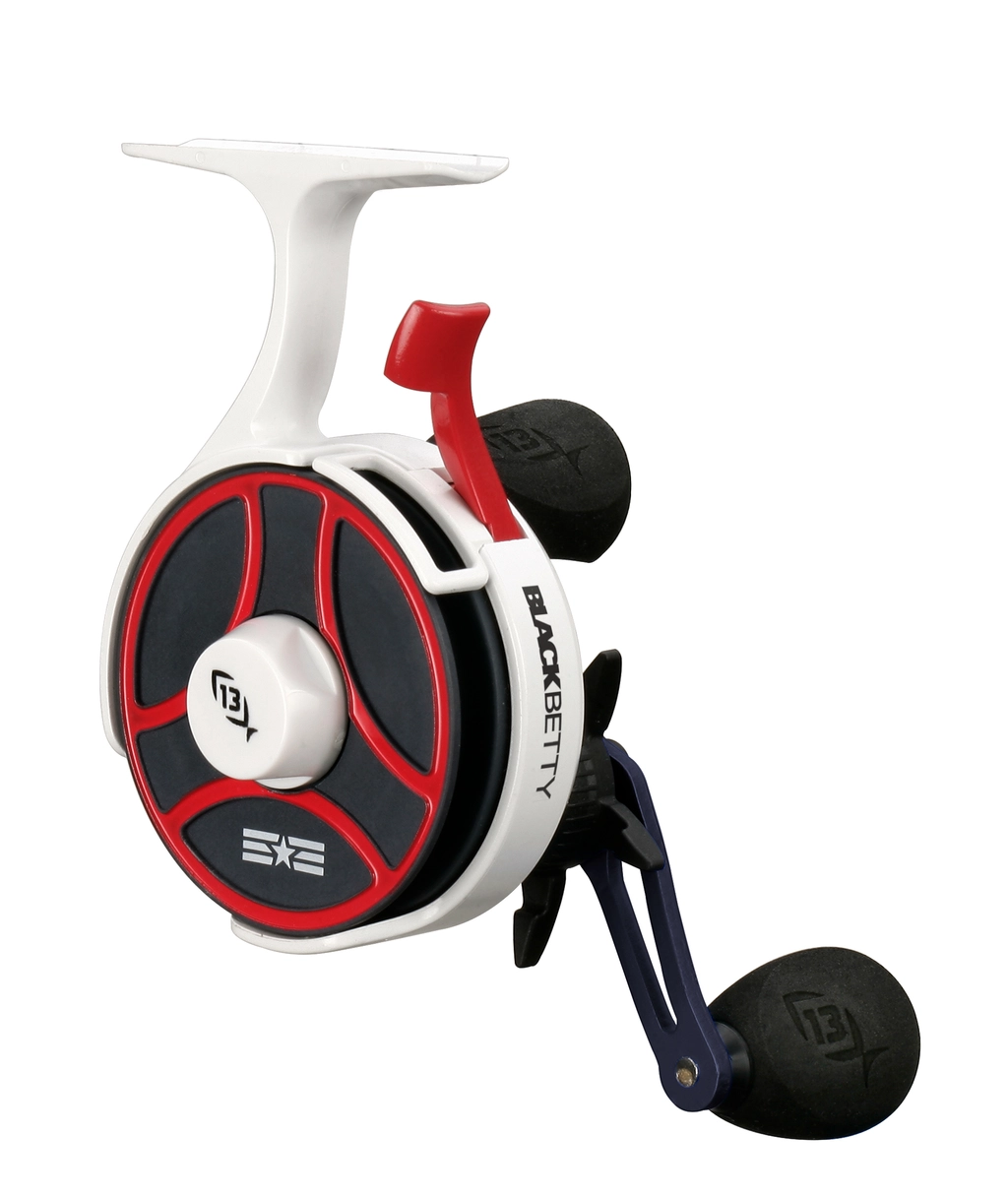An inline vs spinning reel, how are they different? Though I don’t get to go ice fishing as much as I would like, I love discussing the comparisons and differences between inline reels and spinning reels. While spinning reels are widely known amongst anglers, inline reels are very unfamiliar to many people. Let’s take a look the benefits, the similarities, and the differences.
Breaking It Down: Inline Reels & Spinning Reels
Inline Ice Reel
An ice fishing inline reel is a bit unique and specifically designed for ice fishing on frozen lakes for species like Lake Trout and panfish. The spool design is meant to help with line memory and reduce line twists, which is a common issue when you’re on the ice. They look a lot fly reels, however, the notable difference with a fly reel is that they have an open spool. These reels are not designed for casting, rather, they are designed to use vertically like dropping a jig through an ice hole, usually with micro jigs or similar baits. They are also designed to house very light line. An ice fishing inline reel is specifically designed to fit on an ice rod, whereas a spinning reel can fit on any spinning rod. Ice rods are typically the same size for both types, but the design is different.

Inline Reel Pros:
Reduced Fishing Line Twist: This is awesome for jigging because it helps keep the presentation of your bait smooth and natural.
Better Line Management: You get a more direct feel and control over your lure drop, which is important for ice fishing.
Lightweight: They are usually lighter than other reels, making them easier to handle, especially in the cold.
Cheaper: Inline reels are generally less expensive than other types.
Inline Reel Cons:
Learning Curve: It might take some time to get used to using inline rod and reel combos.
Limited Use: You might not use them much, if at all, outside of the winter season.
Less Versatile: Inline reels aren’t a great choice for larger fish or deep water, and you are limited to vertical fishing.
Weaker Drag System: Inline reels have a weaker drag system than other types.
Spinning Reels
These reels are the most common type of fishing reel. The average reel is versatile and can be used for various styles of fishing, including ice fishing. The biggest difference between is, by far, the versatility. You can fish vertically or launch them far out into the water. As I said before, inline reels are not made for casting, they are designed for vertical fishing. They’re also more appropriate for deeper water and larger species, such as Pike.

Lew’s Speedspin
Spinning Reel Pros:
Versatility: You can use them for all kinds of fishing, not just ice fishing.
Ease of Use: They’re generally easier to use, especially for beginners.
Better for Larger Fish: They often have better drag systems and can handle larger fish more effectively.
Spinning Reel Cons:
Line Twist: They can cause more line twists, which can be a hassle when ice fishing.
Bulkier: They can be heavier and bulkier, which might not be ideal in the cold conditions of ice fishing.
Less Sensitivity: You might not feel the bite as directly.
FAQ:
1. Can you cast with an inline reel?
Technically you can, but it’s not going to be accurate or give you much distance because inline reels are not designed for this. If you want a reel that can cast, I would recommend a spinning reel instead.
2. Are inline ice fishing reels worth it?
Absolutely. They are perfect for jigging in shallower water for smaller species.
Choose the Best Reel For You
In summary, each reel has pros and cons, as well as differences and similarities. If you’re focused mainly on ice fishing in the winter and want a reel that’s lightweight and reduces line twist, then an inline reel is a good choice to go with, but if you’re looking for a reel for more than just cold weather that’s versatile and better for catching bigger fish, a spinning reel might be the way to go.

